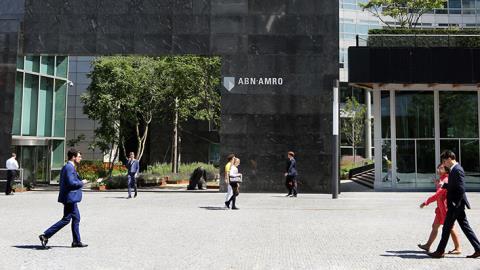A consortium of financial services firms has outlined their vision for a bank operating in a zero-carbon world, coining the term "triple-A bank of the future." This initiative comes from Climate Safe Lending (CSL), a coalition that includes notable institutions such as ABN Amro, Positive Money, and Boston Common Asset Management. Their recent report, Taking the Carbon Out of Credit, presents a framework for how lenders can sever ties with carbon emissions to help limit global warming to below 2°C above pre-industrial levels.
CSL advocates for financial institutions to achieve a ‘triple-A’ rating that signifies their commitment to "climate safety, sustainability, and resilience," drawing parallels to the conventional ‘AAA’ credit rating. Organizations that earn this designation would be expected to "anticipate risk," "add value," and "act urgently."
Anticipating risk involves evaluating clients based on realistic expectations and their potential impact on climate goals. Banks can enhance their sustainable lending efforts by requiring clients to show progress in their decarbonization strategies.
The report outlines ten strategic initiatives designed to facilitate these objectives. Strategies include developing sector-specific decarbonization plans, providing financial support for transition costs, and engaging retail clients—especially younger generations concerned about climate issues.
CSL emphasizes the need for institutions to act decisively, despite the uncertainties surrounding data and methodologies.
Challenges and Critiques
The report critiques banks that profess green commitments while still financing fossil fuel endeavors. For instance, they highlight that major banks like JP Morgan, Wells Fargo, and Citi continue to invest more heavily in fossil fuels than in sustainable projects.
Lenders must also be held accountable to commitments mandated by the Taskforce for Climate-related Financial Disclosures (TCFD), which calls for transparency regarding physical and transitional risks across multiple sectors. However, as of 2018, only 20% of banks were effectively disclosing their resilience strategies, indicating a potential communication gap between the TCFD and financial institutions.
Moreover, the report warns against cultivating a culture in banking that overly depends on achieving specific climate targets. Such practices may lead to misguided incentives that prioritize quick wins over substantive change, such as divesting from easy projects instead of focusing on comprehensive solutions.
To foster meaningful change, lenders are urged to adopt new business models that encourage sector-wide transformation rather than merely fulfilling formal targets.
CSL posits that climate change should not be treated as an isolated challenge but viewed within a broader context of social risks. This holistic perspective would better equip lenders to understand their current impacts while identifying ways to mitigate future risks and enhance positive contributions.
Finally, CSL suggests that lenders adhere to the UN Principles of Responsible Banking, which encourage assessments of their most significant impacts and opportunities for meaningful change. However, this could complicate taxonomy at the governmental or regulatory level, as diverse approaches among banks from various regions may create inconsistencies within the industry.
